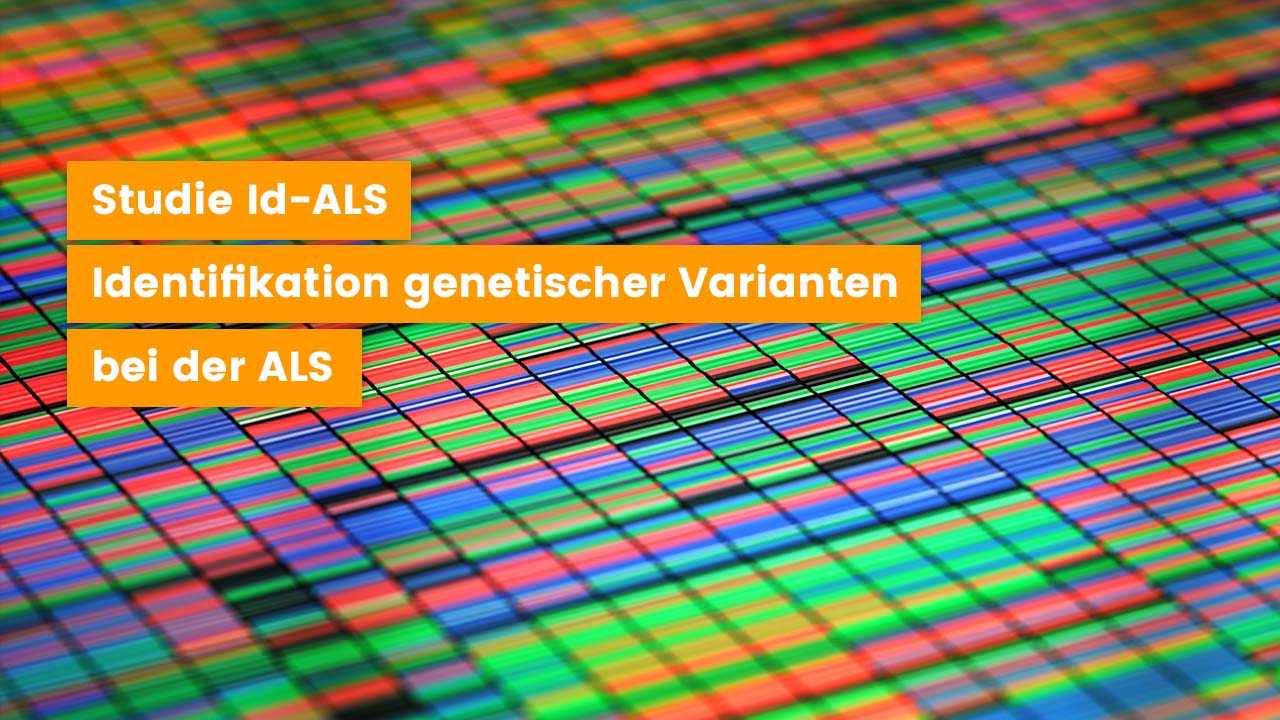The Id-ALS study is a research program to identify genetic alterations in people with amyotrophic lateral sclerosis (ALS). The study is organized by APST. The Alfried Krupp Hospital in Essen and the ALS Outpatient Clinic of the Charité - Universitätsmedizin Berlin have already implemented the genetic screening program of the Id-ALS study in December 2021.
The involvement of another 15 ALS centers is planned over the next 6 months. In the process, the genetic testing of 1.000 patients is planned by the end of 2022. Patients who are under care in one of the registered ALS study centers can participate in this study.
The aim of the study is to identify genetic alterations in people with ALS who do not have a family history of ALS ("sporadic ALS"). Affected people with a positive family history can also participate in the study. This study is based on past research findings that genetic alterations in the genes SOD1, C9orf72, FUS and TARDBP are present in about 10% of all people with ALS.
The identification of genetic alterations is becoming increasingly important as new drugs in development are locating targets, which are based on a therapeutic influence on SOD1, C9orf72 and FUS. .
The study is one of the most extensive genetic studies in Germany and on an international scale.
The study is presented in the ALS Podcast #13 (Genetic Testing and Id-ALS Study). The importance of genetic factors in ALS and their relevance for future therapies are discussed in the episodes of the ALS-Podcasts #4 (Genetik of ALS), #8 (ALS genes) and #13 (Id-ALS study).
For more information about the purpose of the study, the process, the time involved, and the options for reporting results, see: https://www.ambulanzpartner.de/studie-id-als/
Why does the Id-ALS study exist?
The purpose of this study is to explore the following relationships:
- How common are genetic variants in the SOD1, C9orf72, FUS, and TARDBP genes in patients without a family history of ALS ("sporadic" ALS)?
- How common are genetic variants in the above genes in patients with a family history of ALS or dementia (familial ALS)?
- Is there a link between certain genetic changes and disease progression?
- In which affected individuals can genetic alterations be detected that have therapeutic relevance (e.g., SOD1 or C9orf72 mutations for which trials or treatment programs are already underway or planned)?
How do I get more information about participating in the Id-ALS study?
Written study information, which is handed out and discussed at the study center, provides information about the procedures of the study. In addition, clarification of open questions by a study physician and study coordinator - also at the respective study center - is possible and necessary. Participation in the study requires informed consent, genetic counseling and prior clarification of open questions.
Thank you for your interest. If you have any questions about the study, please do not hesitate to contact:
**Dr. Dr. Susanne Spittel
Medizinische Forschung
s.spittel@ambulanzpartner.de
**
